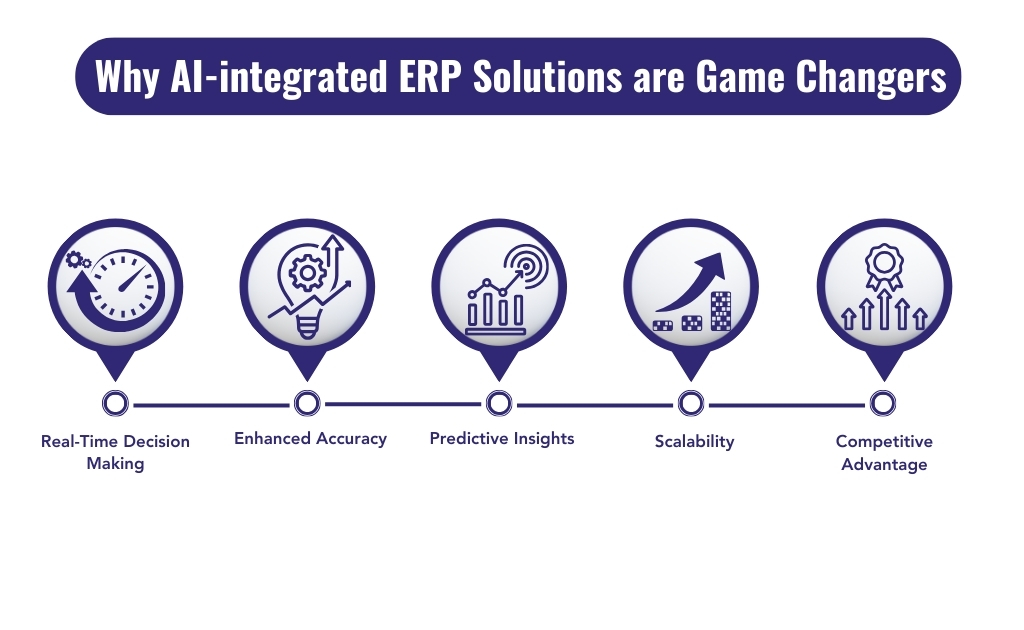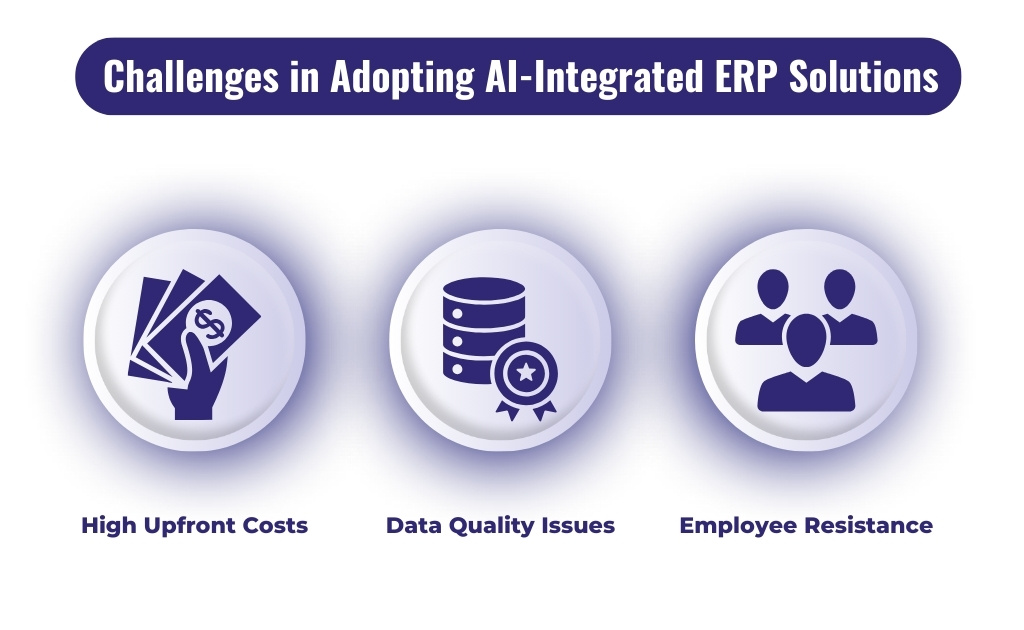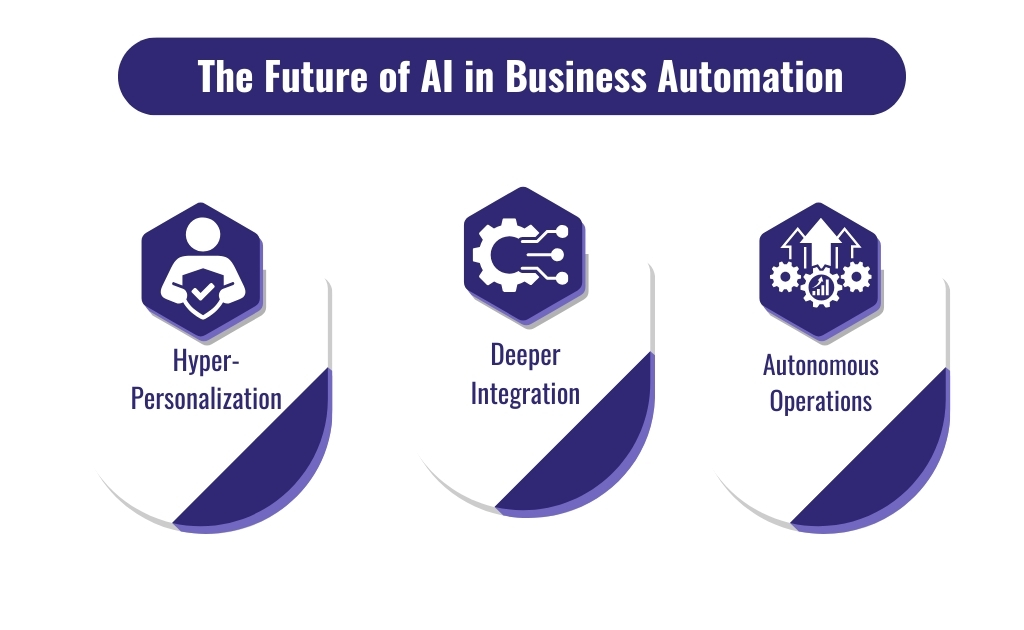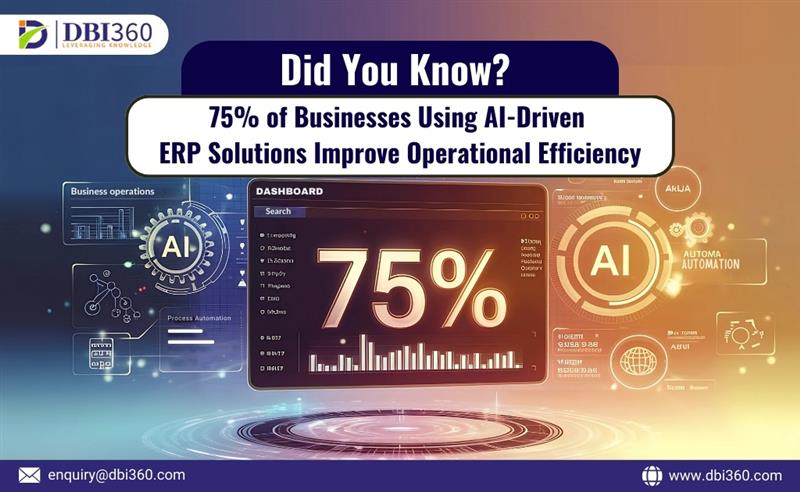Imagine a world where your business runs like clockwork—inventory is automatically replenished, financial reports are prepared in seconds, and customer demands are predicted before they even arise. This isn’t some distant dream; it’s the reality that AI-integrated ERP solutions bring to businesses today.
Gone are the days of manually slogging through spreadsheets or relying on static workflows. The integration of AI for business process automation is reshaping how companies operate, making systems smarter, decisions faster, and teams more productive. Let’s explore how this cutting-edge technology is not just improving but redefining business process automation.
What Are AI-Integrated ERP Solutions?
Think of traditional ERP systems as the backbone of your business, managing everything from inventory to payroll. Now, imagine adding a layer of intelligence that predicts outcomes, automates decisions, and optimizes workflows on its own. That’s what AI-integrated ERP solutions do.
These systems use advanced technologies like machine learning and natural language processing to process data in real-time. Unlike their traditional counterparts, AI-powered ERPs don’t just store and organize data—they analyze it, uncover patterns, and make actionable recommendations. It’s like upgrading from a simple filing cabinet to a full-fledged command center for your operations. In a world where speed, accuracy, and adaptability are non-negotiable, AI-powered ERPs are the ultimate tool to keep businesses competitive.
Why Businesses Need AI for Business Process Automation
Let’s face it: manual processes are holding businesses back. Time-consuming, error-prone, and inefficient, they’re no match for the demands of today’s fast-paced market. This is where AI for business process automation steps in, transforming operations at every level.
What AI Automates
- Procurement: AI predicts demand, analyzes supplier performance, and automates purchase orders.
- Financial Processes: From invoice processing to financial reporting, AI reduces errors and ensures compliance.
- HR Operations: AI handles payroll, scheduling, and employee engagement metrics, freeing up HR teams to focus on strategy.
With AI, automation goes beyond routine tasks—it optimizes workflows, ensures consistency, and accelerates results. Businesses no longer waste time on “busy work.” Instead, they can focus on growth.
AI-Integrated ERP Solutions: The Game-Changer
Why are companies flocking to AI-integrated ERP solutions? The answer lies in their transformative impact. Here’s what makes them a game-changer:
1. Real-Time Decision Making
AI-powered ERPs analyze data as it’s generated, enabling businesses to make decisions based on up-to-the-minute insights. Need to adjust inventory levels? AI identifies trends and forecasts demand before shortages occur.
2. Enhanced Accuracy
Human errors in data entry or calculations can be costly. AI eliminates these mistakes by automating repetitive tasks with precision.
3. Predictive Insights
Unlike traditional ERP systems that focus on historical data, AI-integrated solutions use predictive analytics to anticipate market trends, supply chain disruptions, and customer behavior.
4. Scalability
As businesses grow, so do their operational complexities. AI-driven ERPs adapt seamlessly, managing increased workloads without the need for additional resources.
5. Competitive Advantage
In a crowded market, speed and intelligence are everything. Companies using AI-powered ERPs consistently outperform their competitors by staying ahead of trends and optimizing resources.

Real-World Impact: How Businesses Are Thriving with AI
AI isn’t just a buzzword—it’s a driving force behind some of the most successful companies today. Let’s look at how AI-integrated ERP solutions are reshaping industries:
- Retail: AI predicts purchasing patterns, helping retailers optimize inventory and reduce overstocking.
- Manufacturing: From predictive maintenance to supply chain management, AI ensures production runs smoothly and efficiently.
- Healthcare: Hospitals and clinics use AI-powered ERPs to manage patient records, automate billing, and ensure regulatory compliance.
- Logistics: AI optimizes routes, reduces delivery times, and improves fleet management.
The result? Faster processes, happier customers, and higher profitability.
Challenges in Adopting AI-Integrated ERP Solutions (And How to Overcome Them)
Of course, no transformation comes without its hurdles. Businesses often face challenges like:
- High Upfront Costs: The initial investment in AI-powered ERP systems can be significant, but the long-term ROI is well worth it.
- Data Quality Issues: AI is only as good as the data it’s given. Ensuring clean, consistent data is critical for success.
- Employee Resistance: Change is hard, especially when it involves new technologies. Providing training and highlighting benefits can ease the transition.
The key is to start small—begin by automating one process and gradually scale up. With the right implementation plan, the rewards far outweigh the challenges.

The Future of AI in Business Process Automation
The evolution of AI for business process automation is far from over. Future developments will include:
- Hyper-Personalization: AI will tailor business processes to individual customer needs in real-time.
- Deeper Integration: AI will seamlessly connect ERP systems with other business tools, creating a unified digital ecosystem.
- Autonomous Operations: The ultimate goal is self-managing systems that require minimal human intervention.
For businesses, this means even greater efficiency, agility, and growth potential. Those who embrace AI now will lead the way in the years to come.

Conclusion
The era of manual processes is ending, and AI-integrated ERP solutions are paving the way forward. By combining the power of AI with the functionality of traditional ERP systems, these solutions are not just automating workflows—they’re redefining how businesses operate.
Whether it’s real-time decision-making, predictive insights, or enhanced scalability, AI for business process automation is transforming industries and delivering tangible results. The question isn’t whether your business needs AI—it’s how soon you can implement it.
Are you ready to revolutionize your operations with DBI360? It is time to act now.

